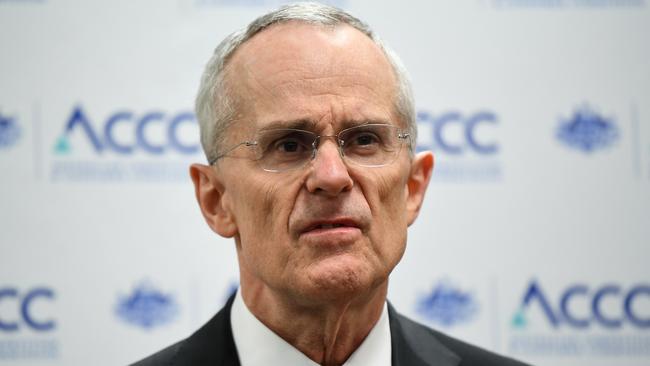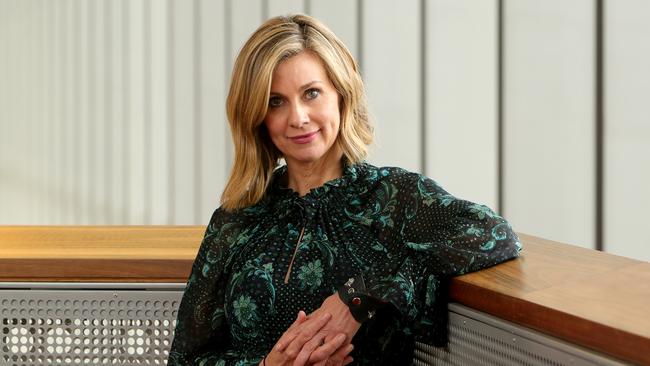ACCC chair Rod Sims flags privacy concerns over Google’s plan to buy Fitbit
Tech giant Google’s proposed $3b acquisition of exercise tracker Fitbit has stoked fears about usage of health data, prompting Australia’s consumer watchdog to issue a stark warning.

VIC News
Don't miss out on the headlines from VIC News. Followed categories will be added to My News.
Australia’s consumer watchdog has sounded a warning on Google’s proposed acquisition of Fitbit.
The search engine giant has flagged plans to buy the fitness tracking company for about $3 billion AUD.
Google said in a statement last week that “privacy and security are paramount” and that Fitbit users’ health data would not be sold or used for its ads.

But ACCC chair Rod Sims said personal health data was an “increasingly valuable commodity”.
“Few consumers are fully informed of, nor can they effectively control, how their data is going to be used and shared,” he said.
“There are further concerns when the service they sign up to is taken over by another business.”
Mr Sims said digital platforms had a history of breaking promises to protect users’ data.
Google updated its privacy policy eight years after acquiring DoubleClick to allow it to combine the ad manager’s data with its personally identifiable data.
In another case, Facebook initially claimed that it wasn’t able to match its users to WhatsApp accounts after it acquired the messaging app.
But two years after the acquisition WhatsApp updated its terms of service and privacy policy to indicate the link could be made.

“Given the history of digital platforms making statements as to what they intend to do with data and what they actually do down the track, it is a stretch to believe any commitment Google makes in relation Fitbit users’ data will still be in place five years from now,” Mr Sims said.
Mr Sims today spoke alongside eSafety Commissioner Julie Inman Grant at the Consumer Policy Research Conference Conference, where both called for beefed up privacy laws to protect online users.
Ms Inman Grant launched a searing attack on the “boys of the internet” who she worked with at Microsoft in the 1990s.
“They hated coming to Washington DC to kiss the ring of government – they were out in their chinos and polo shirts creating jobs, creating vast amounts of wealth,” she said.

“These internet dynamos looked and talked like adults but were more like kids with the eye on the prize, rushing headlong into the internet gold rush.”
But Ms Inman Grant said Microsoft was now a “dorky teenager” compared to the “testosterone-filled” giants – Google, Amazon, Apple and Facebook – that regulators had to grapple with today.
The Federal Government is yet to respond to the ACCC’s digital platforms inquiry that pushed for new laws to better protect online privacy and limit the negative impact of Google and Facebook’s dominance.
MORE NEWS:
CASEY COUNCILLOR SPEAKS OUT OVER CORRUPTION CLAIMS
MACHETE ATTACK VICTIM LIVING ‘NIGHTMARE’
INSIDE CLIVEDEN, MELBOURNE’S LOST 100-ROOM MANSION
Ms Inman Grant said online platforms and companies also had a responsibility to protect their users in the same way car manufacturers do.
“When we get into our cars today we almost take for granted that the brakes will be effective, that seatbelts will work and that airbags will deploy,” she said.
“Safety has been built in by design over the past 100 years since the model T came off the assembly belt.
“We should be encouraging (online) companies to do risk assessments upfront, build the protections in before the damage has been done.”
